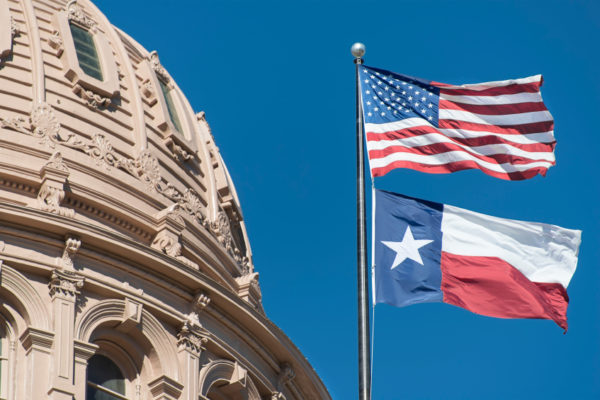AUSTIN, TX — Public education and property taxes are dominating the agenda of the 140-day Texas legislative session now underway, and findings in the latest University of Texas/Texas Tribune Poll suggest that these efforts resonate with the concerns of Texas voters.
Asked to identify the most important among issues Texas Gov. Greg Abbott declared emergency items earlier this month, more than 50 percent of respondents chose either property taxes (23 percent), public school funding (21 percent) or increasing teacher pay (13 percent).
The poll also asked Texans specifics about each issue. Fifty-five percent said the state spends too little on K-12 public education, compared with 9 percent who said, “too much.” On the subject of property taxes, 58 percent of Texas voters believe Texans pay too much, compared with only 6 percent who say Texans don’t pay enough.
“Legislators and statewide leaders have clearly signaled their desire to pass legislation this session to address these two linked issues after talking about doing so without major results for the last two or three sessions,” said James Henson, co-director of the poll and director of the Texas Politics Project at UT Austin. “The poll results suggest that a large share of Texans would welcome progress this time around.”
Texas voters also support the idea behind a proposed measure that would require local governments to get voter approval before local property tax revenue is allowed to grow above a set limit: 72 percent report that they would support legislation that would require voter approval in these circumstances.
“Voters support this approach to property taxes, with more almost 70 percent believing that this kind of limitation on local governments will slow the growth of taxes in the future,” Henson said. “At least at this point, they don’t seem persuaded by arguments that this approach could hamstring local governments’ ability to provide services to residents.”
On education issues, Texans are divided on how they perceive the quality of K-12 public education — 47 percent of voters believe it’s “good” or “excellent,” and 42 percent believe it’s either “not good” or “terrible.” Even so, 42 percent disapprove of how state leaders are handling K-12 public education, while 24 percent approve, and 20 percent remain neutral.
In considering ways to increase school funding, majorities of voters supported the ideas of increasing taxes on alcohol (58 percent), legalizing and taxing marijuana (60 percent) and redirecting a portion of the oil and gas severance tax to public education (58 percent). However, they strongly opposed increasing sales or motor fuel taxes (74 and 62 percent, respectively) and reducing the number of sales tax exemptions for business or professional services (71 percent).
“While Texans say they want property tax relief and more money for teachers and schools, the range of acceptable sources for new funding is pretty limited,” said Joshua Blank, manager of polling and research for the Texas Politics Project and one of the designers of the poll. “The Legislature will have to decide whether they perceive enough support to consider new sources of revenue to fund their ambitious policy agenda.”
The poll also asked Texas voters to weigh in on some hot-button federal issues, including:
- Health care: 45 percent prefer the current system, and 44 percent would prefer a universal health insurance system.
- Climate change: 74 percent believe the U.S. government should be involved in some capacity, while 21 percent think it should do nothing.
- Federal income tax: 56 and 62 percent approve of increasing taxes on families earning more than $1 million or $10 million a year, respectively, and 79 percent oppose of increasing federal taxes for everyone.
The University of Texas/Texas Tribune survey of 1,200 registered voters was conducted from Feb. 15 to Feb. 24 and has an overall margin of error of +/- 2.83 percentage points.
This is the latest in a series of polls conducted by UT Austin’s Texas Politics Project and The Texas Tribune. Comprehensive poll results and information about methodology were released initially by The Texas Tribune. More information about the poll can be found at the Texas Politics Project website. Graphics, a summary document, crosstabs and a data file will be publicly available for research and teaching next week at the Texas Politics Project website.




